Past Events
ABCD Family Night
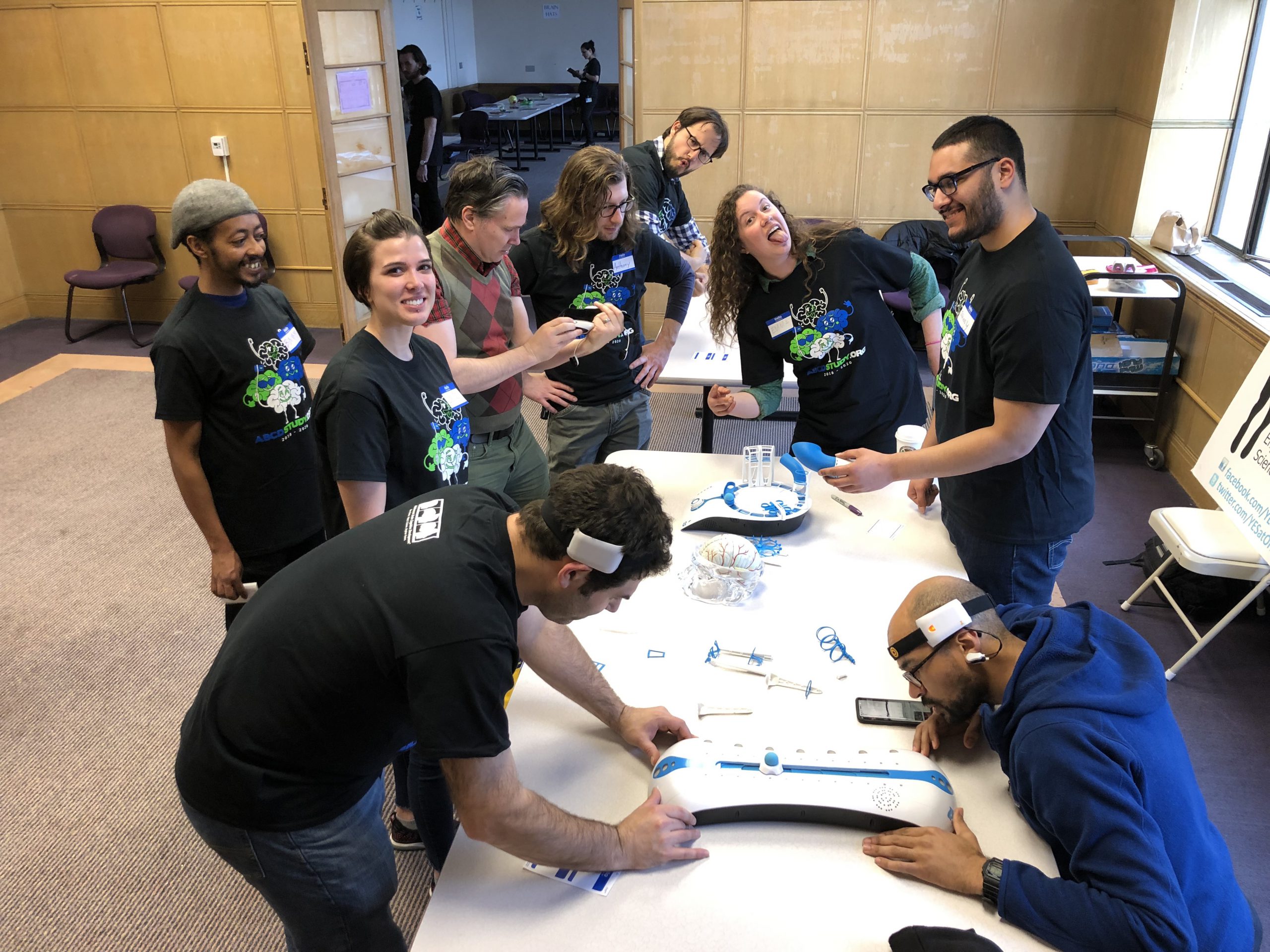
In March of 2019, the ABCD Family night welcomed over 200 families enrolled in the Adolescent Brain Cognitive Development (ABCD) Study. The purpose of orientation night was to update the parents of the children in the study about the mission and progress of the study. The night was also meant to remind the parents just how big a contribution to science they are making. Dr.’s Bonnie Nagel and Damien Fair shared updates about the study progress, followed by a Q & A session where the parents could directly engage the scientists in conversation.
While the parents were attending the informational session in the auditorium, close to 200 adolescents who are part of the ABCD study engaged in a science party. Volunteers from the YES! program, NW NOGGIN, the TRAC Lab, and the Developmental Brain Imaging Lab set up a science fair to entertain and educate the teens. At one booth, they were able to hold and closely examine cadaver brains from several species, humans included. By far, this session drew the largest interest in the brain with questions ranging from “what would happen if you knock out this area right here?” to “which part of the brain allows you to dream?” Our graduate and undergraduate volunteers certainly enjoyed the challenge. There were booths for building neuron models using pipe cleaners that the young neuroscientists could take home to show off to their friends. We also had hopscotch, corn hole, stations for making brain hats, and playing around with slime for a bit of fun and relaxation.Overall, the evening was a great success. Parents enjoyed an informative evening engaging with the ABCD study scientists, while their kids had a fun and educational visit.
American-Somali Soccer Team Visit
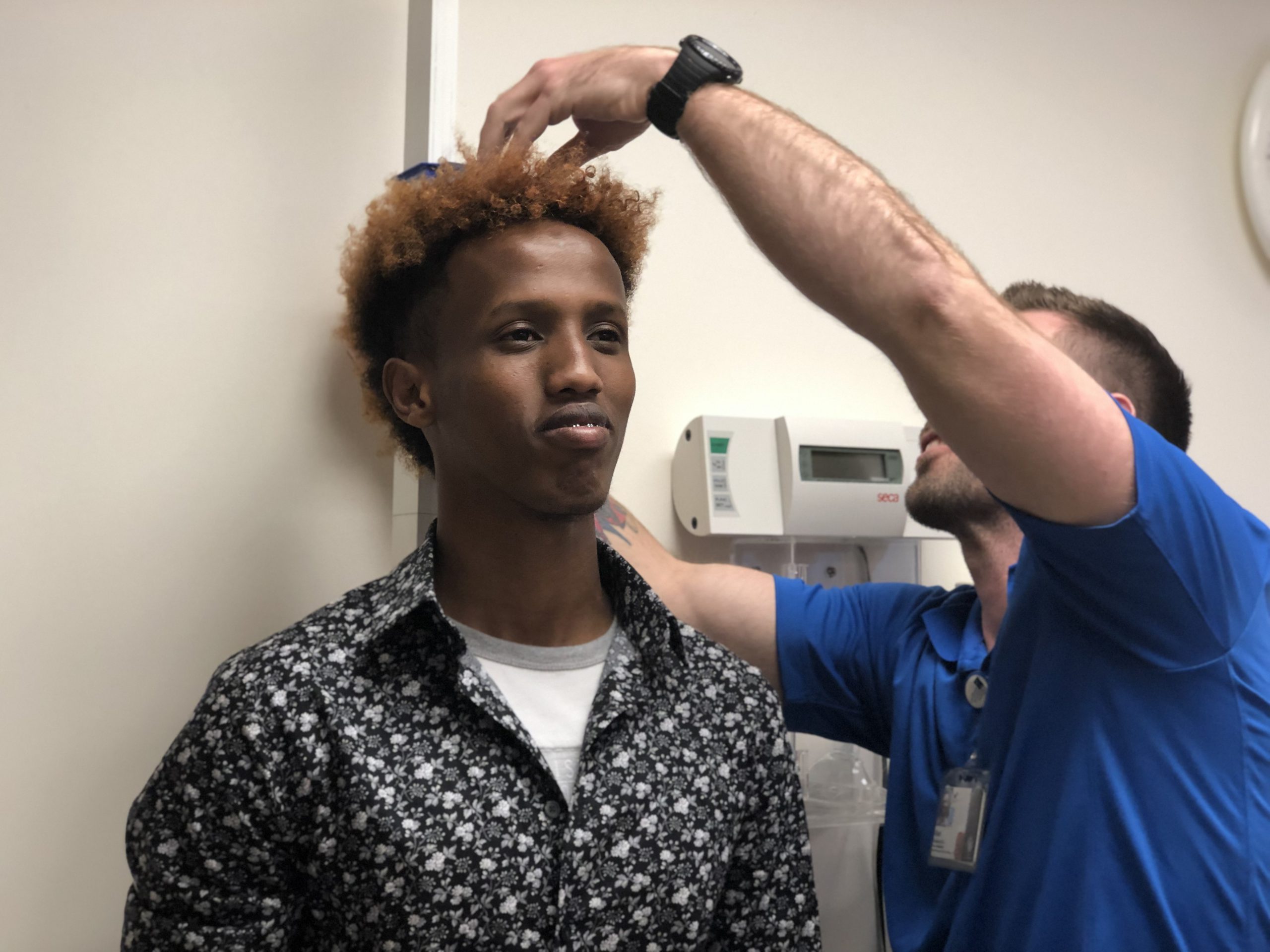
Members of the American-Somali Soccer Team visited in July 2019 to tour several of the labs. This photo is from the Human Performance Lab, where the group was greeted by Alex Kanable, an exercise physiologist and research technician in the lab. Alex explained how sports medicine experts help their clients, often elite athletes, reach their fitness potential and how they help improve the athletes’ performance. Next, Alex recruited one of the athletes to volunteer for a hands-on demonstration of the lab’s health and fitness evaluation procedures. Alex, and Dr. Kerry Kuehl, Section Chief and Director of the Lab, conducted the evaluation process via monitoring of the volunteer’s resting and active blood pressure, as well as monitoring heart rate at rest and during exercise using electrocardiography (ECG). Following a discussion of how they assess heart and lung function, Dr. Kuehl and Alex discussed healthy nutrition and exercise habits. The visit was followed by lunch and a visit to the Oregon National Primate Research Center.
Camp ELSO
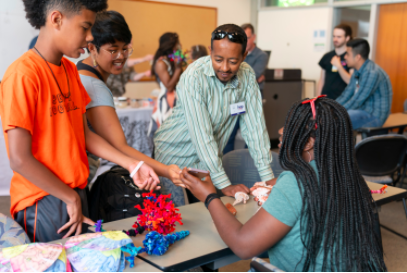
Camp ELSO is a grassroots organization whose mission is to support the youth of color and provide opportunities to Experience Life Science Outdoors. One of their goals is to empower youth who are traditionally underrepresented in the STEM field to see themselves as leaders and agents of change within environmental/social justice movements and their own communities. They strive to create a welcoming affinity space for our youth and staff members so that they feel supported to learn, grow, and be confident in navigating dominant culture spaces as their full selves. In 2019, Camp ELSO youth visited during a session on “How Scientists Conduct Research.” Students got to tour the Portland Aerial Tram, the Electroencephalography (EEG) Lab and Portland Alcohol Research Center. During lunch, students listened to a panel of clinicians and researchers of diverse backgrounds as they shared about how to pursue careers in STEM. The day ended with a “Brains & Art” session with the North West Neuroscience Outreach Group Growing in Networks (NW NOGGIN). NW NOGGIN volunteers and Dr. Bill Griesar, co-founder of the outreach program, came equipped with real human brains, as well as the brains of multiple other species, and supplies for constructing neuroscience inspired art, such as pipe-cleaner neurons.
Northwest Youth Expo
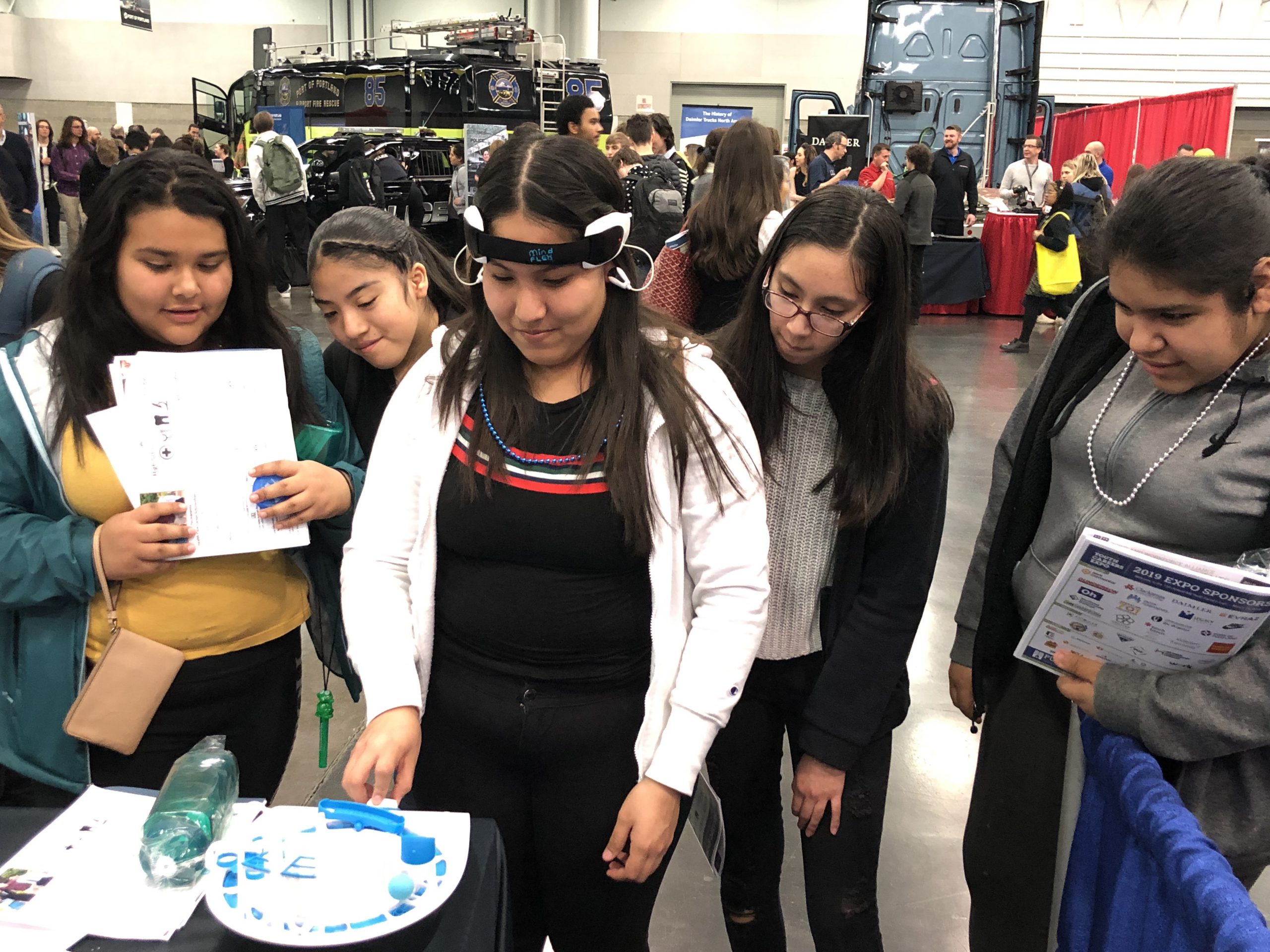
The annual NW Youth Careers Expo is the Northwest’s premier career-exploration experience. As we have done in years past, YES! was present to talk with the 7000 or so high school students who attended about pursuing STEM careers. This past year, YES! sent a delegation of three post-doctoral researchers from our lab to talk to the students about their career trajectories, the courses they took in college, how they traversed graduate school, and ultimately how they earned their Ph.D. degrees. The Expo was an excellent opportunity to reach a large number of high school students from underrepresented minorities in a single setting.
OMSI Brain Fair
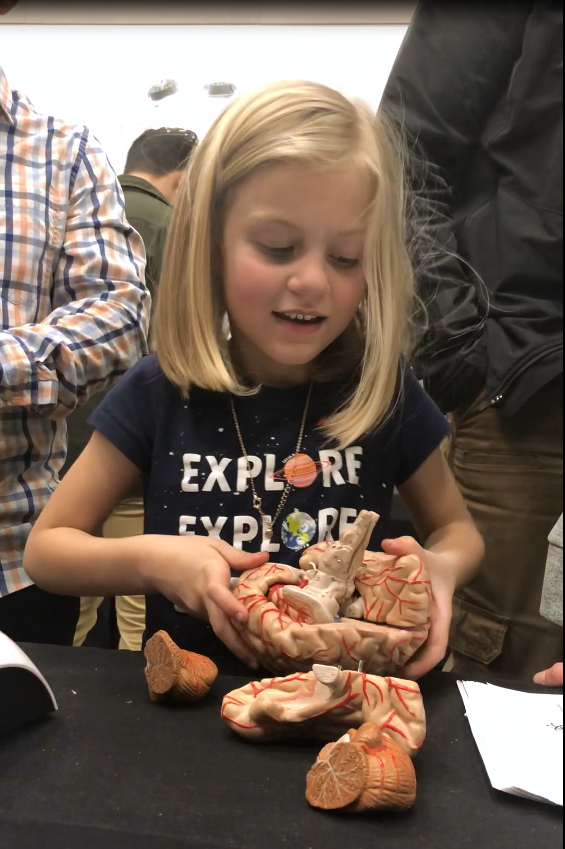
Every year, the Oregon Museum for Science and Industry (OMSI) holds a Brain Fair in the spring. As we have done for the past eight years, YES! was in attendance and eagerly engaged the 1000+ attendees of all ages – parents and children alike. We had conversations about the brain and provided interactive activities that teach about brain structure and function. One of the most popular activities was the Mind Flex game. This game uses EEG (brainwave) technology to guide a small ball through an obstacle course using the “strength” of exerted mental activity. We had hundreds of duels all day long!
Another activity that we organized was the Cockroach Beat Box developed by BackYard Brains. This activity shows how the brain sends messages and signals by demonstrating the effects of electrical signals on cockroach legs. The simple activity taught a lesson about neuroscience that was quickly grasped by even the youngest of audiences. We had a great time at the Brain Fair and are excited to return next year!
Sí Se Puede
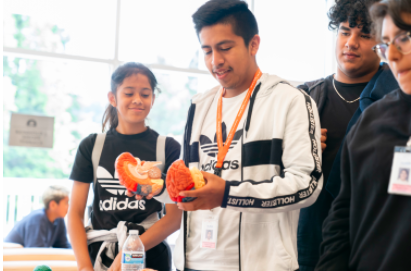
Sí Se Puede was a day-long event for Spanish-speaking students. The day started with a visit to the Oregon National Primate Research Center where students had a chance to directly converse with the scientists about their career trajectories and day-to-day lives as researchers. The group then attended a presentation by Dr. Oscar Miranda Dominguez and Octaviano Merecias-Cuevas who gave a presentation in Spanish about the basic organization of the brain. This lecture was a very interactive discussion in which the students, most of whom are bilingual Spanish/English speakers, had a chance to engage with and ask questions about the material in either language depending on their comfort level. Next, students rotated between a various stations, including a demonstration of different medical tools, a hands-on demonstration of technology from Backyard Brains that allowed students to control the body movement of their classmates using the Human-Human-Interface, and a game station with MindFlex technology.